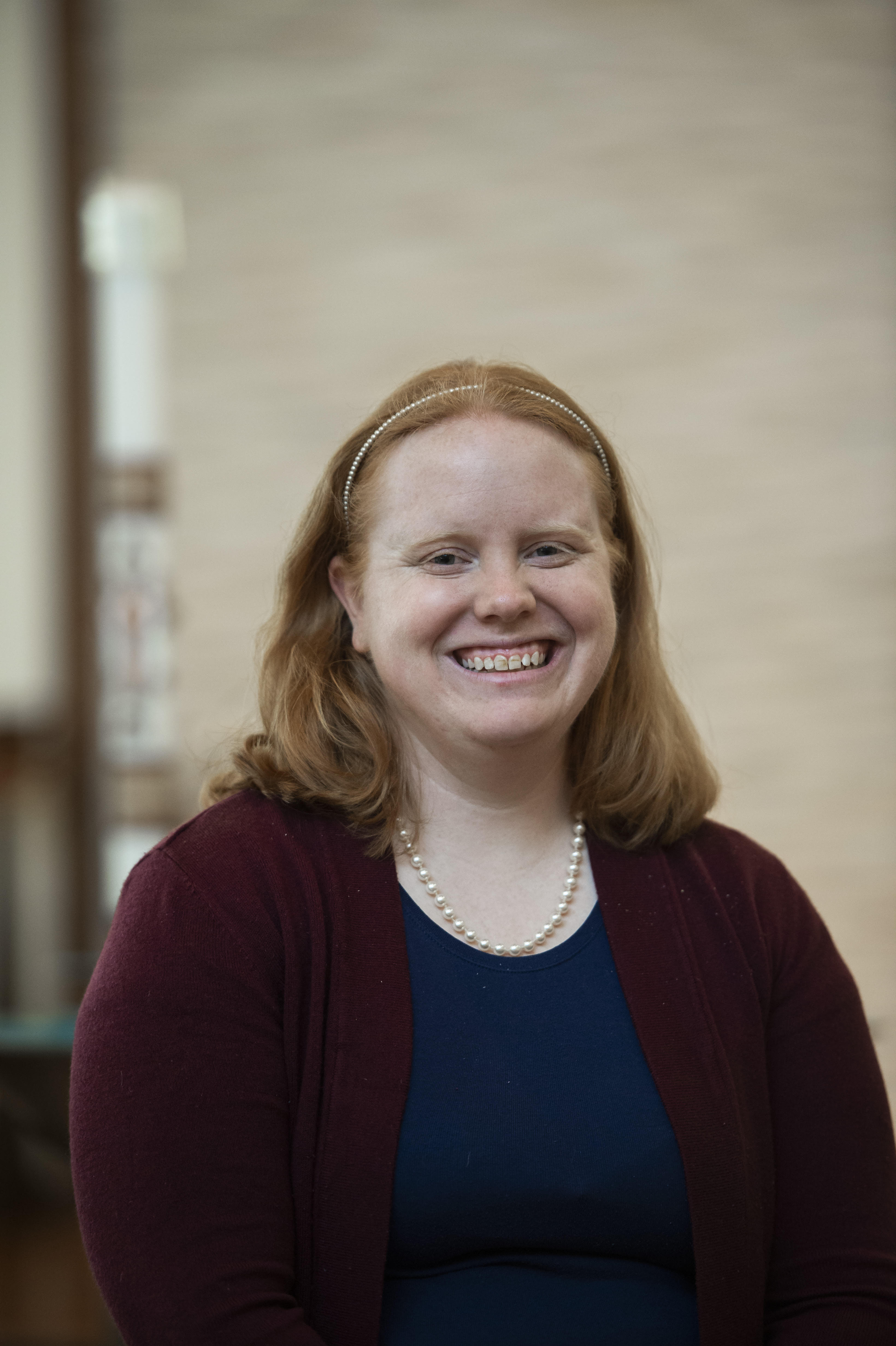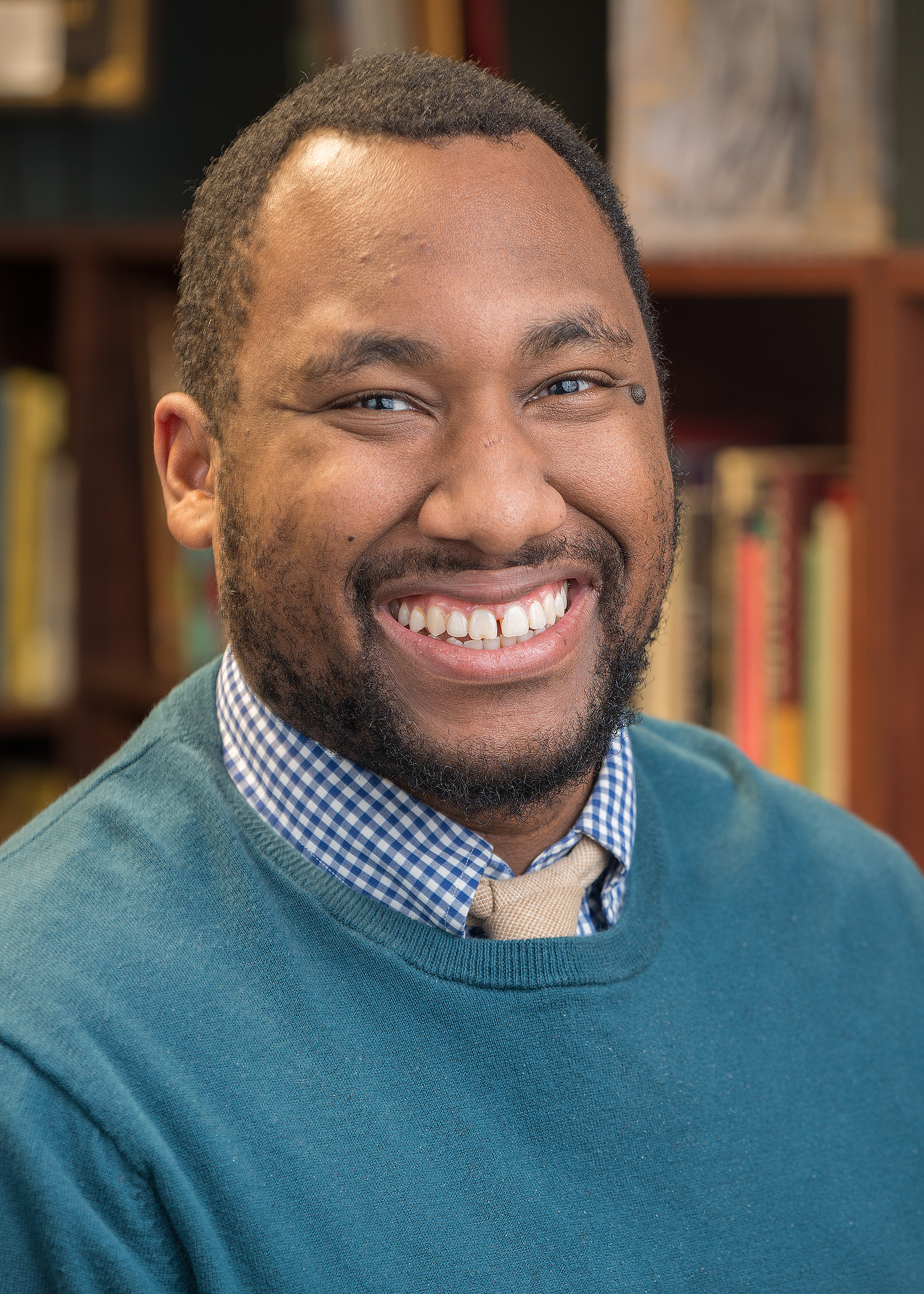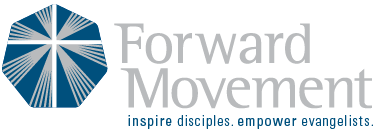Thirteenth Sunday after Pentecost
Adult and Small Child
Allison Liles

The Rev. Allison Sandlin Liles is a wife, mother, peacemaker, and priest learning to navigate life in the suburban wilds of Dallas, Texas. After working as Episcopal Peace Fellowship’s Executive Director for six years, Allison has re-entered parish ministry in the Diocese of Fort Worth. She currently serves as the Priest-in-Charge of St Stephen’s Episcopal Church in Hurst, Texas and the editor of Grow Christians, a ministry of Forward Movement.
Read: Luke 14:25-33
Reflect: Of all the gospel stories we share with young children, this one ranks among the most difficult. “Whoever comes to me and does not hate father and mother, wife and children, brothers and sisters, yes, and even life itself, cannot be my disciple.” (Luke 14:26, NRSV) Even though Jesus lists several other costs associated with following him, most children stop listening after the call to choose between people they love deeply and Jesus Christ. The challenge for adults teaching this text is to find the balance between not scaring children and not telling them that Jesus didn’t really mean what he says. Jesus wants us to put him first in our lives, above our families and friends and favorite toys. Assure children that you struggle with this command, too, and then name various costs associated with being a Christian.
Respond: Wonder aloud with children if you are willing to behave differently at school and work because of your faith? Will you stand up for someone being teased or share your snack with someone you see who looks hungry, even if it means you yourself will be hungry later in the day? Are you willing to call out your parents for their actions when they don’t align with the gospel? And as adults, are we willing to listen to the children in our care?
-Allison Liles
Adult and Elementary Victoria Hoppes is the Director of Youth and Children's Ministries at Resurrection Lutheran Church in Indianapolis, Indiana. She has ministry experience with youth, family, and camping programs at both the parish and diocesan levels. She holds degrees from Texas Lutheran University and Luther Seminary. She also holds a certificate in Youth and Family Ministry from Forma’s certificate program. You can follow Victoria on social media (@vlhoppes).Victoria Hoppes

Read: Luke 14:25-33
Reflect: Do you think it is easy or hard to be a follower of Jesus? In this reading from Luke, Jesus tells us that being a true follower may be harder than we think. Being a follower of Jesus means that we need to put aside all of the things that distract us from listening to and following Jesus' teaching. It also means that sometimes we are called to say or do things that are different than what society wants us to do. Putting aside distractions and sharing the good news of Jesus can be very hard to do!
What Jesus is saying to us in this passage is that in order to follow him--to be a true follower-- we have to be willing to make him a part of our everyday life. It’s hard work, and sometimes we might say or do things that are not very loving or in the way of Jesus. That is okay! Jesus still loves us and will guide us in the right direction.
Respond: Make a wearable reminder that you are a follower of Jesus. On card stock, heavy paper, or poster board, draw and cut out a small cross. Decorate the cross however you wish. Then, punch a small hole at the top of the cross and string some yarn through the hole. Wear your cross as a reminder of how you are a true follower of Jesus!
-Victoria Hoppes
What can you "give up" in your life in order to better follow Jesus?
Adult and Youth Wallace Benton serves as the Assistant to the Rector for Youth Ministries at St. David's Episcopal Church in Roswell, GA. He's been fortunate to have grown up in the Episcopal Church and became interested in youth ministry after volunteering with his former youth program after college. Wallace has worked diocesan retreats and activities such as New Beginnings and Happening.
Currently, he is the lay director for New Beginnings in the Diocese of Atlanta. He is also a member of the Episcopal Youth Ministry in ATL podcast (which you should check out immediately!)
Wallace Benton

Read: Luke 14:25-33
Reflect: Jesus describes to the large crowds who were traveling alongside him and his disciples the costs of being a disciple, or true follower. He uses the word “hate” to describe one’s relationship with their family and life as a requirement to becoming a disciple. Jesus continues saying that it is hard to put aside activities we have already started or put energy into. Jesus finishes saying that the people listening to him could not become disciples without giving up all our possessions.
For some of us, not completing an assignment or an activity would be near impossible. For others, getting permission to put something aside sounds liberating. But Jesus is asking if you willing to leave everything that is comfortable, everything that you know and perceive as normal. Jesus is saying that you have to be willing to lose your family, friends, and opportunities for which you were excited before you can truly follow him as a disciple.
Respond: Take a sheet of paper and design your own garage sale. In that garage sale, put out all of the things you own. Also, place your hopes and dreams, your friends, and your family. What are the hardest items or people for you to put aside to be a true disciple of Jesus? Why? What would you be gaining if you did give everything up?
-Wallace Benton
Adult and Adults Regina Heater (she/her/they is a self-avowed and practicing ecumenist, story-collector and story-sharer. A church administrator for a United Methodist Church in Northern NJ, she's exploring how administration, communication, faith formation and pastoral care all intersect in the church office. She often creates and posts #PrayersForDaysThatEndInY on the social internet. Connect with her at www.reginaheater.com.Regina Heater

Read: Psalm 139
Reflect: What do you know for sure? Gene Siskel once asked Oprah Winfrey that question, and discerning and declaring her answers became part of her life’s work. A monthly column of her answers is featured in her magazine and have been compiled into a book, organized by theme for easy reference and inspiration. Most are easily distilled to something quotable, guidance for how to live a fulfilling life. She admits that when the question was first posed to her, it flustered her. Perhaps it flusters you to consider what you know for sure, things you believe deeply in your heart, unwavering and unchanging through time and circumstance. If this describes you, might I suggest you begin here, with Psalm 139? Start with verse 14: “I praise you, for I am fearfully and wonderfully made.” (NRSV) In order for it to really sink in, you need to know about the Hebrew roots of these words, fearfully and wonderfully. “Fearfully” is from yara’, meaning awe, honor, and reverence. Think of it as “reverently.” “Wonderfully” has its root in pala’, which means to be different, striking, remarkable - outside of the power of human comprehension.
Know this for sure: God made you. God made you reverently, in a manner outside the power of human comprehension. You, fearfully and wonderfully made. If you were to embrace this idea, completely and fully, if it were to become unshakable truth for you, how might your life be transformed?
Respond: Write down two copies of Psalm 139:14. Tape one copy near something you touch every morning (your coffee maker? A vitamin bottle?) and another copy near something you touch every evening (a light switch?). Use these as a reminder of what you know for sure and live into that knowledge each day.
-Regina Heater
Download a printable copy of this week's devotions HERE.
Tags: Lectionary Based Readings & Reflections / Latest Posts

